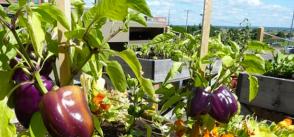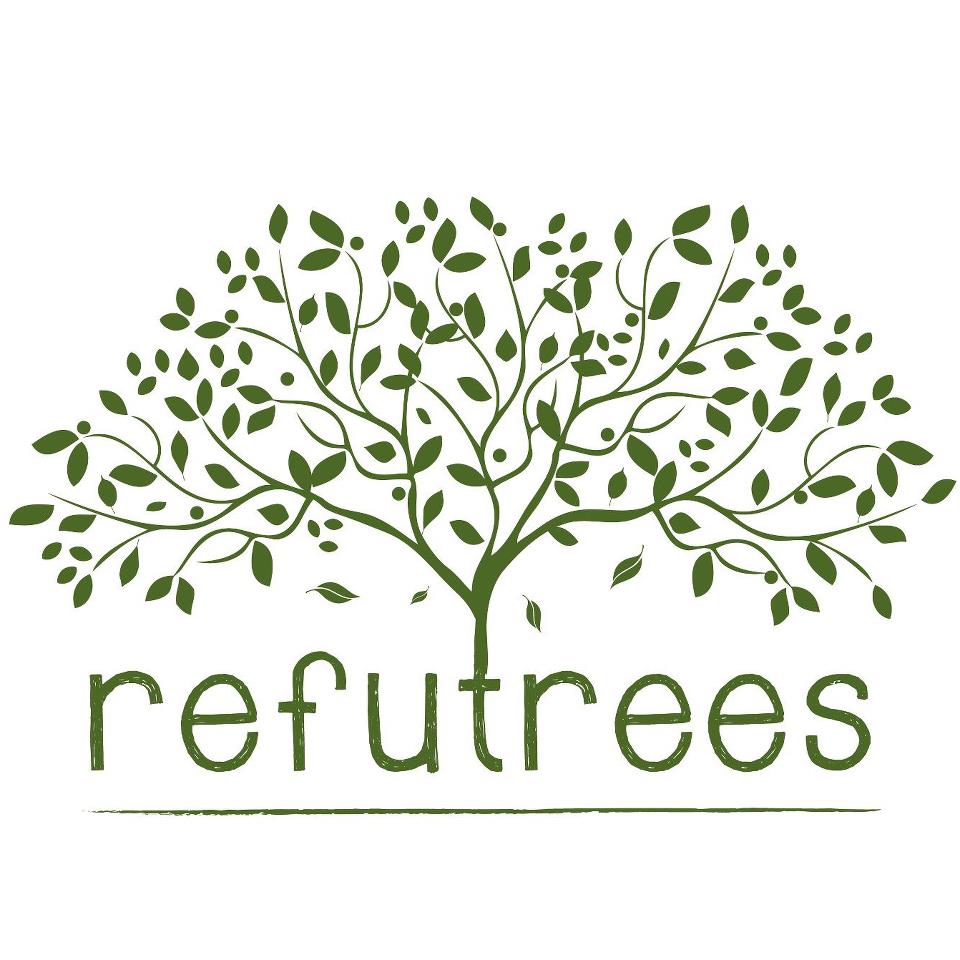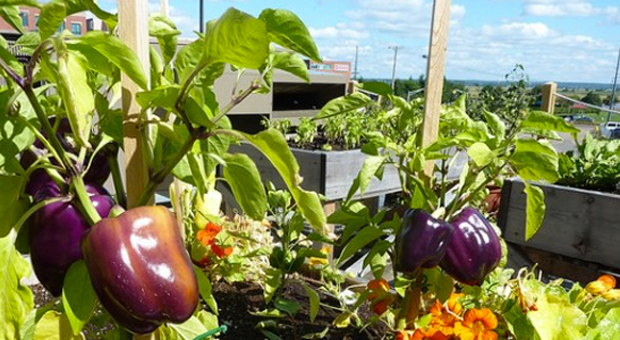
Refutrees, building creative, sustainable and green projects
Refutrees is a grass-roots initiative that aims to respond to community needs by building projects that are sustainable and conscious of the local environment across refugee camps in the MENA region.
What distinguishes Refutrees from other similar initiatives is their approach based on integrating green innovation with local communities development projects. Recently, they launched a crowdfunding campaign to turn their ideas into concrete projects.
Curious to know more about Refutrees and its approach, we posed them three questions.
Your initiatives, from the rooftop gardening in refugee camps to the Agro-Knowledge exchange program, pay particular attention to sustainable agriculture as an important component in the development of a community, in this case refugee camps. Can you tell us something more about this relationship?
By incorporating sustainable agriculture into the context of refugee camps we are rooting our work in a historical understanding of the relationship between Palestinians and their lands, as well as a contemporary understanding of global food systems today. Through the process of forced displacement, Palestinian communities have not only been disconnected from their land, but also deprived of access to sustainable livelihoods and their indigenous way of living. By investing in sustainable agriculture in the pseudo-urban spaces of the camps, we hope to create opportunities for communities to restore their relationships with land and subsistence agriculture, and as a result create spaces that work towards food sovereignty.
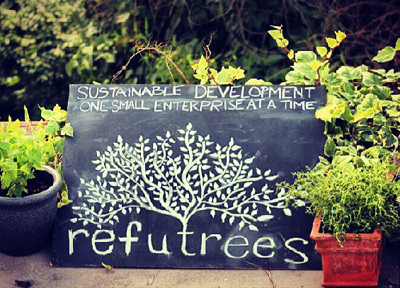 Both the Rooftop Garden and Agro-Knowledge Exchange projects are rooted in the principles of responding to community needs for organic food accessibility, health improvement and sustainable livelihoods. Currently, existing organizations that work with Palestinian refugee communities employ practices that are traditional across international development policy and implementation. However, there are serious gaps in the way in which these policies and implementations consider the local needs and resources. Thus, chronic conditions of poverty, deteriorating health, donor-reliance, and lack of access to organic food are all issues that plague local communities that are further vulnerable to systematic violence through the ongoing occupation. Sustainable agriculture is just one way to begin to respond to the multi-dimensional issues faced by long-term displacement. Again, it is important to re-state the importance of farming for Palestinian communities as it is deeply rooted in history, culture and the socio-economic dynamics of communities. And while organic food is marketed these days as a new trend– for Palestinian refugees who were previously land owners and farmers, organic food was a normative factor in their lifestyle, trade, and food consumption. Therefore, for Palestinians sustainable agriculture is not a new idea, rather a revived form of resilience.
Both the Rooftop Garden and Agro-Knowledge Exchange projects are rooted in the principles of responding to community needs for organic food accessibility, health improvement and sustainable livelihoods. Currently, existing organizations that work with Palestinian refugee communities employ practices that are traditional across international development policy and implementation. However, there are serious gaps in the way in which these policies and implementations consider the local needs and resources. Thus, chronic conditions of poverty, deteriorating health, donor-reliance, and lack of access to organic food are all issues that plague local communities that are further vulnerable to systematic violence through the ongoing occupation. Sustainable agriculture is just one way to begin to respond to the multi-dimensional issues faced by long-term displacement. Again, it is important to re-state the importance of farming for Palestinian communities as it is deeply rooted in history, culture and the socio-economic dynamics of communities. And while organic food is marketed these days as a new trend– for Palestinian refugees who were previously land owners and farmers, organic food was a normative factor in their lifestyle, trade, and food consumption. Therefore, for Palestinians sustainable agriculture is not a new idea, rather a revived form of resilience.
On the larger scale, our research is also entrenched in the reality of the agricultural sector and its role in the Palestinian economy – or rather, the lack of one. While traditionally, the Palestinian economy has been reliant on the agriculture sector, today it comprises of less than 6% of the overall GDP. Furthermore, less than 1% of the Palestinian Authority’s budget is invested in the development of agricultural capacities and what little funds are allocated have been disseminated into the salaries of the ministry employees (“Farming Palestine for Freedom”, Al-Shabaka, 2012). This context is further exacerbated via the practices of the international assistance program across the Palestinian territories where around 1.41% of international aid (around $14 million out of $1 billion) and some 10% of donor funding to Palestinian non-governmental organizations (NGOs) was directed toward rural development and agricultural capacities.
These realities thus beg the attention of initiatives like Refutrees to re-invest creatively into models of agriculture to develop a framework that can help support the needs of refugee communities. Here, by working at the grass-roots level to develop roof-top gardens and by raising scholarship funds for youth there are opportunities to reclaim food sovereignty while simultaneously building livelihoods.
Refutrees has an entrepreneurial approach, different from more traditional international donors initiatives. Why did you choose to adopt an entrepreneurial approach and, for instance, launch your campaign on Indiegogo?
Refutrees was born through field research and community engagement at the grassroots level. This offered us opportunities to understand the context in an intimate manner, rather than through traditional models that operate in a form of charity and top-down development. As artists, academics, lawyers, architects and environmentalists, innovation is a key principle that unites us and drives us. This is exciting for us because it means unlimited conceptual growth, untied to ideological or industry-based frameworks. Our decision to launch an Indiegogo campaign was one way to do things differently. By using crowdfunding as a means of gaining start-up money, we are able to design our pilot projects and demonstrate our ideas independently from inception, free of strings that may be attached to funding early in a start-up’s career. As we move forward, our entrepreneurial model will be grounded in projects that are self-sufficient and self-funding, as these are key ways we are setting ourselves apart.
Furthermore, crowdfunding as a new fundraising platform is quite exciting in the way that it puts the growth potential of an idea into the hands of the people – so if an idea has worth, its supporters will demonstrate it by making it happen.
Crowdfunding further has a brilliant capacity to build visible support and creates a beautiful interactive process of building a project in a transparent manner. This was all incredibly appealing to us, and it has been wonderful to feel that our donors are so involved and personally invested in our work.
At the level of our actual projects, we also are utilizing an entrepreneurship model, which allows us to explore the intersections between social causes and empowering business models for communities. In particular, it has promise in the context of Palestinian refugees given the many multi-dimensional restrictions that create barriers towards the livelihoods of the community. Creating pilot projects with local youth, for example, has huge potential to address local needs with an emphasis on livelihoods via social entrepreneurship. We are very excited for the next phase where we will further work with youth to develop opportunities that empower livelihoods while also incorporating issues of community health, environment, water, waste and agriculture.
Can you tell something on how Refutree was established? What was the driver, the motivation to establish it? How is Refutrees different from other organizations?
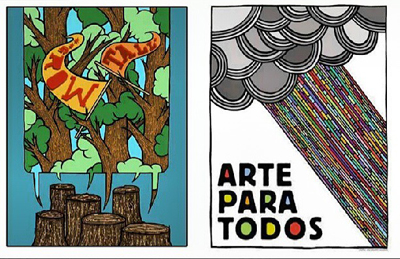 Refutrees was inspired through the research of Founder Lamya Hussain who developed a Masters thesis investigating community health across refugee camps in the West Bank and Lebanon. Through the course of research, it became increasingly evident to how current development and aid programs were not only failing to address basic community needs – food, waste disposal, job creation – but were based on a system that institutionalized donor-reliance. The ways to address them were there, but there were no resources to implement them. In an effort to address these issues of unemployment, lack of land and food sovereignty, and deteriorating community health, Refutrees was created in order to integrate green innovation with the development of projects fundamentally based on the needs of local communities in collaboration with local resources. Developing from there, Refutrees grew with the support of the Board of Directors, Advisors and through the dedication of the Team – and we’ve been going strong ever since.
Refutrees was inspired through the research of Founder Lamya Hussain who developed a Masters thesis investigating community health across refugee camps in the West Bank and Lebanon. Through the course of research, it became increasingly evident to how current development and aid programs were not only failing to address basic community needs – food, waste disposal, job creation – but were based on a system that institutionalized donor-reliance. The ways to address them were there, but there were no resources to implement them. In an effort to address these issues of unemployment, lack of land and food sovereignty, and deteriorating community health, Refutrees was created in order to integrate green innovation with the development of projects fundamentally based on the needs of local communities in collaboration with local resources. Developing from there, Refutrees grew with the support of the Board of Directors, Advisors and through the dedication of the Team – and we’ve been going strong ever since.
Refutrees was founded on the basis of re-thinking development paradigms, so that is a principle way we set ourselves apart. Our internal dynamics, however, are what truly make us a unique organization. In addition to be an entirely volunteer-run initiative – which emphasizes the dedication of the team – as a platform for innovation, we are necessarily and organically made up of a diversity of professional backgrounds. Artists, academics, lawyers, architects and environmentalists, that also bring with them each of their diverse geographical locations. Furthermore, we have been able to work as a tight-knit team despite the frequent time zones differences – all of which we believe gives us an edge in how we work as a team.
Another key characteristic of Refutrees is its collaborative spirit. In addition to developing projects that we hope are easily replicable, and as a result, easily disseminated, we also develop projects and ideas with similar-minded organizations. We have selected some key partners that truly share our passion, and as a result, are able to further improve and sharpen our approaches to health, environment and agriculture.
Partnerships like these are important to us because we believe in creating spaces that don’t precipitate competition, but rather, collaboration. In brainstorming together we are far more productive, creative and more successful in our outreach. Here, we are exceptionally happy to be working with Eco-Art Uganda and the Arab Group for the Protection of Nature. There is much happening at Refutrees, which will continue to demonstrate our capacity as a truly unique initiative.
Thank you, Refutrees for this interview!
[Video via Refutrees YouTube channel]
[Photos from Refutrees Instagram channel]
